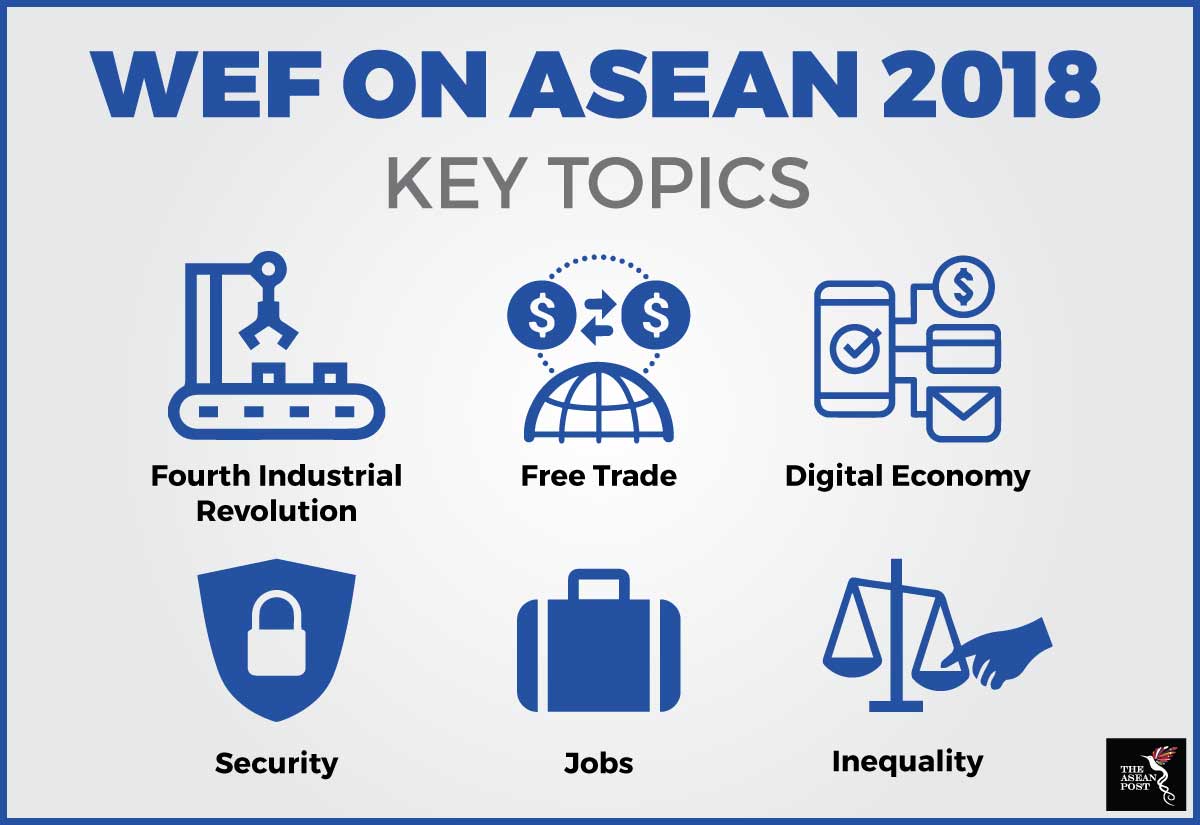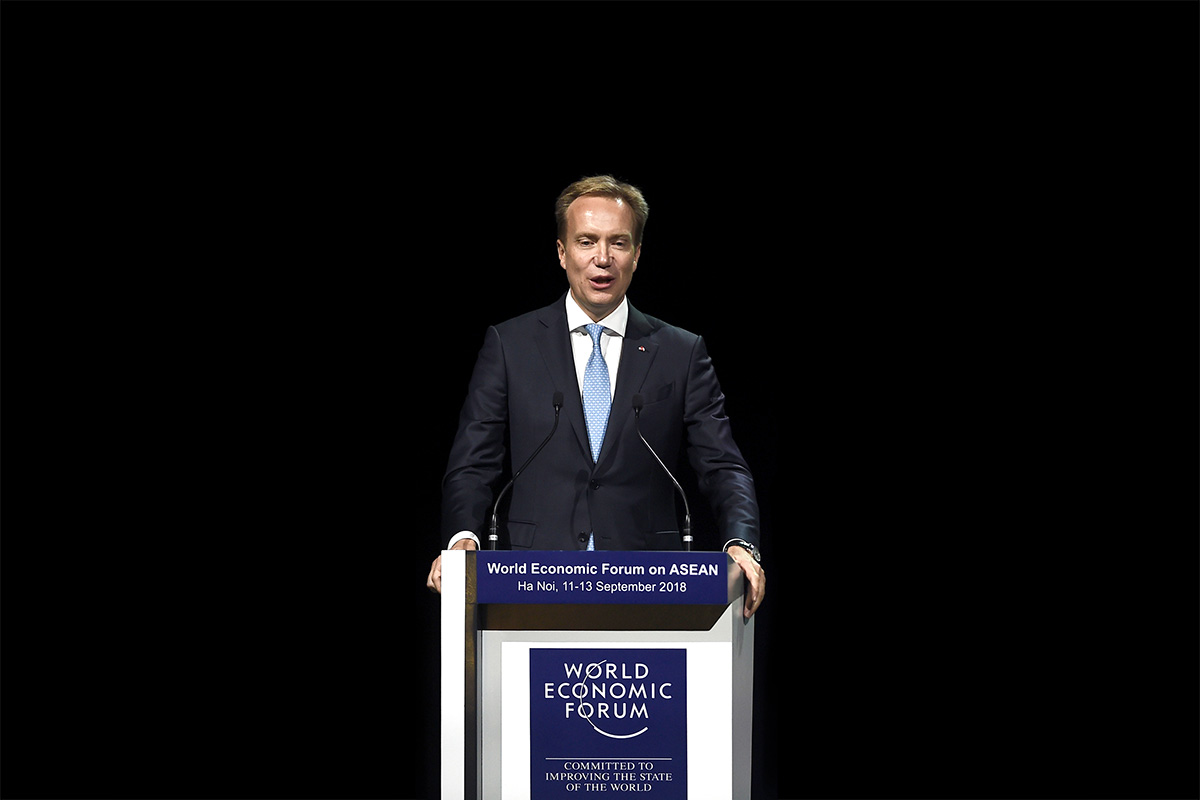After three days of discussions and meetings, the World Economic Forum (WEF) on ASEAN in Hanoi, Vietnam concluded today. Focusing on the central theme of ASEAN 4.0: Entrepreneurship and the Fourth Industrial Revolution, most of the discussions that took place revolved around issues such as technology disruption, mitigating the effects of such a disruption and the digital economy.
On the final day however, issues that were explored were centred round the current geopolitical realities facing ASEAN and Asia in general rather than topics relating to the Fourth Industrial Revolution.

Source: WEF on ASEAN
All eyes on Daw Aung San Suu Kyi
The third day kicked off with a rare one-on-one session between the President of the World Economic Forum Børge Brende and Myanmar’s State Counsellor, Aung San Suu Kyi.
The session began with Aung San Suu Kyi talking about education and economic prospects in Myanmar. She mentioned the potential of the agricultural sector and expressed hopes for increased foreign investment there. She also highlighted that her government has been working hard on fostering sustainable development.
While her comments on the economy were insightful, what everyone wanted to hear was the Nobel prize winner’s thoughts on the current political climate in Myanmar. Myanmar is currently ruled by a nominal civilian government, with Aung San Suu Kyi as de facto leader. Currently, the country is facing international scrutiny for the abuses carried out on the Rohingya Muslims by the army as well as the jailing of two Reuters journalists. The leader who was once seen as an icon of human rights in the region has now fallen from grace due to her alleged acquiescence of the human rights abuses in her country.
“There are of course ways in which, with hindsight, the situation could’ve been handled better,” said Suu Kyi when asked about the situation in Rakhine state. While she concedes that the army or the government could have done better, she stopped short of condemning or actually addressing the alleged abuses of the military which she described as the “military aspect” of the conflict. She did however, mention that the government should take responsibility for the actions of the military.
She also criticised the international community for focusing too much on the Rohingya issue and not on the other minorities which are also threatened in the country.
Suu Kyi also publicly addressed for the first time the arrest of two Reuters journalists who had been investigating the killing of Rohingya men in the province. She denied that the government were clamping down on the press and that the arrests had "nothing to do with freedom of expression at all". Instead, she argued that the two reporters were arrested for breaking the Official Secrets Act.
Economic fears
Another session held today was on Asia’s Geopolitical Outlook featuring the Prime Minister of Sri Lanka Ranil Wickremesinghe, Japan’s Minister of Foreign Affairs Taro Kono, South Korean Minister of Foreign Affairs Kang Kyung-Wha and others. The discussion was heavily dominated by the fear of rising unilateralism in the global economy and geopolitics. Pointing to growing tensions between China and the United States (US), they expressed their fears that unilateral action between the two countries will have massive effects on the global economy and geopolitical landscape. Other topics discussed include security issues in the South China Sea as well as the rise of China’s influence in the region.
It was not all gloom and doom however. They expressed that deals such as the Trans Pacific Partnership (TPP) Agreement and Regional Comprehensive Economic Partnership (RCEP) were essential in strengthening free trade and multilateralism. South Korea's Kang Kyung-Wha expressed her support for the pact. "I certainly hope my country will be able to join sooner rather than later. It's not all protectionist trends gathering steam, there are also lots of efforts to protect and expand the free and fair space," she said.
Overall, WEF on ASEAN 2018 ended on an optimistic note. At the closing plenary, the co-chairs expressed a positive outlook for the region. "The underlying fundamentals for this part of the year remain positive," said Kevin Sneader, Managing Director at McKinsey and one of the Co-Chairs of the forum. Despite trade wars and geopolitical tensions dominating headlines, Sneader said that ASEAN is moving towards a bright future.
"650 million people and a market that's rapidly moving towards consumption was cause for confidence,” he enthused.
Related articles:
WEF Technology Pioneers: Initiating global change
Can ASEAN turn disruption into opportunity?
